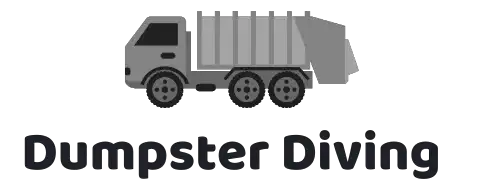Dumpster diving at Costco has become a popular trend among those looking to save money, reduce waste, and find valuable items discarded by the retail giant. Costco, known for its bulk products and generous return policy, often throws away items that are still in good condition or even brand new. In this comprehensive guide, we’ll explore the ins and outs of dumpster diving at Costco, providing tips and strategies to help you make the most of your treasure hunt while adhering to legal and ethical guidelines.
Understanding Costco’s waste management practices:
Costco generates a significant amount of waste due to its vast product offerings and high sales volume. While the company strives to minimize waste through various initiatives, such as donating unsold food to local charities, a substantial amount of products still end up in dumpsters. This waste often includes:
- Overstocked or discontinued items
- Damaged packaging or products
- Returned items that cannot be resold
- Food items past their expiration or sell-by dates
Legal and ethical considerations for dumpster diving at Costco:
Before embarking on your dumpster diving adventure at Costco, it’s essential to understand the legal and ethical aspects of the activity. Laws regarding dumpster diving vary by location, so research your local regulations to ensure you’re acting within the law. Generally, dumpster diving is considered legal if the dumpster is located in a public space, and you’re not trespassing on private property. However, always respect Costco’s property and follow ethical guidelines such as:
- Diving during off-hours to minimize disruption
- Cleaning up after yourself and leaving the area tidy
- Not taking more than you need or can reasonably use
- Being respectful and discreet

You might be interested: Dumpster Diving at Target: Everything you need to know
Best Time and Locations for Successful Dumpster Diving at Costco
Timing is crucial when it comes to successful dumpster diving at Costco. To maximize your chances of finding valuable items, consider diving:
- After store closings: Many Costco locations dispose of waste after the store has closed for the day.
- On weekdays: Weekdays typically see less competition from other dumpster divers compared to weekends.
- During seasonal transitions: Costco often clears out inventory during seasonal transitions, leading to more discarded items.
As for store locations, focus on Costco warehouses in affluent areas, as they tend to generate more waste and have a higher likelihood of valuable finds.
Essential tools and safety tips for dumpster diving:
- Wear protective clothing, such as gloves and sturdy shoes, to shield yourself from sharp objects and debris.
- Use a flashlight or headlamp to navigate dark dumpsters.
- Bring a step stool or ladder to access hard-to-reach items.
- Carry hand sanitizer or wet wipes for cleaning up after your dive.
- Be cautious of potential hazards, such as broken glass, chemicals, and pests.
What to expect and valuable finds at Costco dumpsters:
Costco dumpsters can be a treasure trove of valuable items, including:
- Electronics: TVs, laptops, tablets, and other devices that may have minor defects or be in perfect working condition.
- Furniture: Chairs, tables, and other furniture items that may have damaged packaging or minor imperfections.
- Food: Unopened, unexpired food items, such as canned goods, snacks, and even fresh produce.
- Clothing and accessories: Brand-name clothing, shoes, and accessories that may have been returned or have minor damage.
You might be interested: Dumpster Diving at Sephora: Everything You Need To Know
How much money can you make from dumpster diving at Costco?
It is challenging to provide an exact figure on how much money you can make from dumpster diving at Costco, as the earnings can vary greatly depending on several factors such as the items found, their condition, and your ability to sell or repurpose them. Some dumpster divers have reported making hundreds or even thousands of dollars by reselling their finds or using them to save money on personal expenses. However, it is essential to approach dumpster diving as a supplemental income source rather than a primary one.
The value of your dumpster diving haul will depend on factors such as:
- Quality and condition of the items: The better the condition of the items you find, the more valuable they will be. Electronics, furniture, and clothing in good condition can fetch higher prices when resold.
- Demand for the items: Popular and in-demand items will generally sell faster and at higher prices than niche or less desirable products.
- Your ability to sell or repurpose the items: Successfully selling or repurposing your finds will require some effort, such as cleaning, repairing, and marketing the items. The more time and effort you invest, the more potential there is for profit.
It is important to note that dumpster diving should not be relied upon as a consistent or primary source of income. Instead, it should be viewed as a way to supplement your income, save money on personal expenses, and promote sustainability by reducing waste. Always follow local laws and regulations and respect Costco’s property when dumpster diving.
Also Read: Dumpster Diving at Tj Maxx: Everything You Need to Know

Strategies to Monetize Your Findings and Generate Income IN Costco’s
- Clean, repair, and refurbish: Many items found in dumpsters may need some TLC before they can be sold. Clean, repair, or refurbish the items to increase their value and make them more appealing to potential buyers. This can be especially profitable for electronics, furniture, and appliances.
- Sell online: Utilize online marketplaces such as eBay, Craigslist, Facebook Marketplace, or Amazon to sell your dumpster diving finds. Be sure to take clear photos, write accurate descriptions, and price competitively to attract buyers.
- Sell at local flea markets, garage sales, or consignment shops: Selling your items at local events or consignment shops can help you reach customers who prefer in-person transactions. This can be a good option for clothing, furniture, and other items that may be difficult to ship.
- Upcycle and create unique products: Use your creativity to transform dumpster diving finds into new, unique, or customized products. For example, you could turn old wooden pallets into furniture, repurpose fabric remnants into handmade accessories, or create art from discarded materials.
- Bundle items: Group complementary items together and sell them as a bundle. This can be especially effective for smaller items or those that may not sell well individually. For example, you could create a bundle of kitchen gadgets, a set of books, or a collection of toys.
- Donate and receive tax deductions: If you are unable to sell certain items, consider donating them to charity. You can receive a tax deduction for the fair market value of the donated items, which can help offset your income tax liability.
- Offer services related to your finds: If you have expertise in a specific area, consider offering services related to the items you find. For example, if you frequently find electronics, you could offer repair or installation services. This can help you generate additional income beyond just selling the items themselves.
- Rent-out items: If you find high-quality items that may not have a high resale value but are still in demand, consider renting them out. This can be especially profitable for items like tools, equipment, or party supplies that people may only need temporarily.
- Network with other dumpster divers: Connect with other dumpster divers in your area or online to share tips, resources, and potential leads on valuable finds. Building a community can help you learn more about the best practices for monetizing your dumpster diving ventures.
Remember that generating income from dumpster diving requires time, effort, and dedication. Always follow local laws and regulations, respect Costco’s property, and prioritize safety when dumpster diving.
Final Thoughts
Now that you know the etiquette and code of conduct for dumpster diving at Costco, it’s time to wrap things up and provide some final thoughts.
Firstly, dumpster diving at Costco is an amazing way to reduce waste and save money. The items that Costco throws away are often still perfectly good, and there are so many ways to use them. Not only is it an environmentally friendly activity, but it can also be a great way to save money.
Secondly, it’s important to remember that dumpster diving is against the law in some places. So, it’s essential to make sure that you research the local laws before you do any dumpster diving. Additionally, it’s important to be respectful of the property that you are on and the people that you interact with.
Thirdly, it’s important to remember that dumpster diving can be a dangerous activity. It’s important to never enter a dumpster alone and always make sure that you take the proper safety precautions. Additionally, it’s important to wear the proper protective gear and make sure that you stay safe.
Finally, dumpster diving at Costco is an amazing way to reduce waste and save money. However, it’s essential to remember that it’s important to be respectful of the property and the people that you interact with. Additionally, it’s important to take the proper safety precautions and make sure that you stay safe.
Conclusion
Dumpster diving at Costco is an exciting way to uncover valuable treasures and help the environment. Not only can you save money, but you can also find items that are good as new. Just remember to be respectful of Costco’s policies and to take the necessary safety and hygiene precautions. It may take a bit of practice and patience, but with the right tips and tricks, you’ll be a master dumpster diver in no time.
You might be interested: Dumpster Diving At The Apple Store: Everything You Need To Know

Greetings, eco-conscious explorers! I am Arjun Bandari, a seasoned Dumpster Diving enthusiast with over a decade of expertise in uncovering hidden treasures amidst the discarded. My journey into this unconventional lifestyle began in New York, fueled by a passion for sustainability and a desire to challenge the norms of our throwaway culture.
With a bachelor’s in Enviromental Health and Safety, I seamlessly blend academic insights with practical experiences to navigate the world of Dumpster Diving. Over the years, I’ve become a recognized figure in the sustainable living community, sharing my discoveries and insights through workshops, community outreach, and various online platforms.
My commitment to promoting eco-friendly practices has garnered attention from local and regional media, earning me featured spots in publications that highlight the environmental impact of Dumpster Diving. As an advocate for responsible waste management, I have been honored with awards recognizing my contributions to the field.
In addition to my hands-on experiences, I’ve extended my reach through various published works, shedding light on the untapped potential within discarded items. Whether it’s repurposing furniture, salvaging electronics, or sharing practical tips for fellow Dumpster Diving enthusiasts, I am dedicated to inspiring a conscious and sustainable way of living.
Join me on this exciting journey as we redefine the narrative around waste, discover hidden gems, and collectively contribute to a greener, more sustainable future. Together, let’s dive into the world of Dumpster Diving and uncover the beauty beneath the surface of our disposable society.

